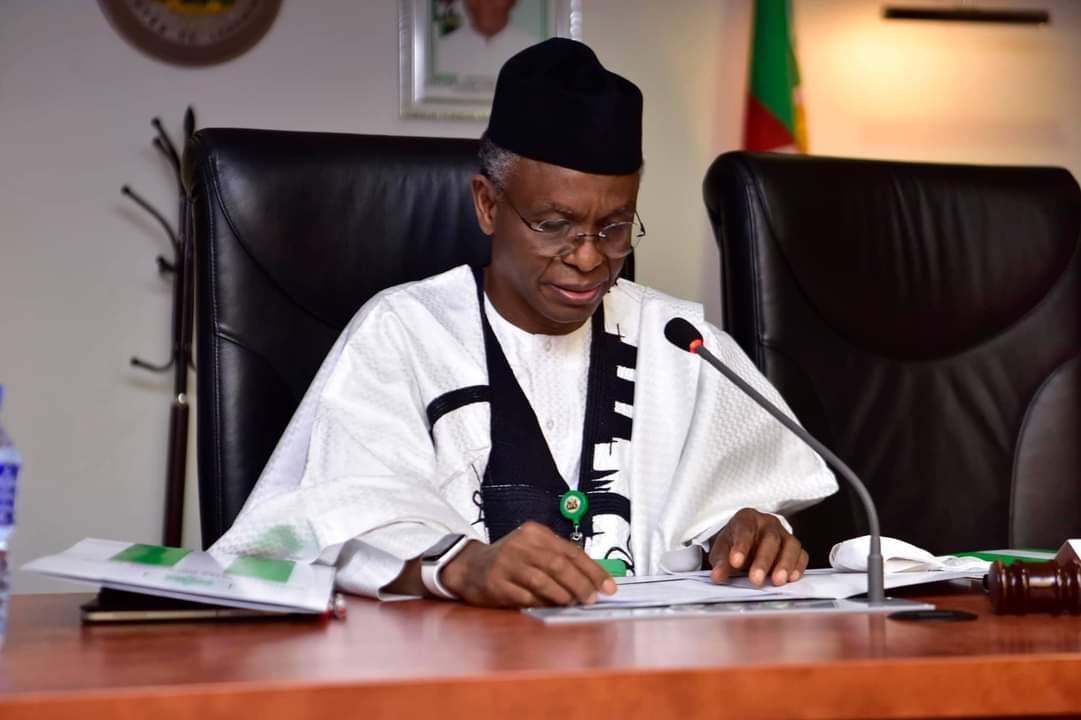“We are going to attack them,” he said. “We will lose a few students, but we will kill all the bandits and recover some of the students.” This was Malam Nasir El-Rufai speaking on the university students abducted in Kaduna state in a May 7 video interview published by The Punch newspaper on Twitter. He had had an uneasy road, and it’s easy to tell his frustration in the quest to outsmart the kidnappers who had kept the state in the news. The absurdity of El-Rufai’s declaration of willingness to let go of some of the students as collateral damage underlines our tragic hopelessness, and it’s also not a pleasant piece of information for the grief-stricken parents of these students, some of whom had already been killed.
The heart of the nation has been beating restlessly to these unfortunate events unfolding in Governor El-Rufai’s Kaduna State these past weeks. The movie-type suspense that played out in the efforts to negotiate and transact with the kidnappers of those students of Federal College of Forestry Mechanization, Afaka and Greenfield University has drained us of the patience, compassion and grammar left in us. It has more than our human feelings, exposed the inadequacy of the government.
- Onitsha Port yet to function, 7 months after commissioning
- How Nigerians lose millions to fraudulent real estate developers
President Muhammadu Buhari’s May 5 remark in acknowledging the release of the 27 students of the Federal College of Forestry Mechanization over the week must’ve cleared the doubts of any citizen who had rushed to assume the government had some genius strategy. Expressing “deep appreciation to all who contributed one way or the other to this happy outcome,” Buhari “appeal(ed) for the release of the students of Greenfield University & all other citizens held in captivity.
If one finds El-Rufai’s open admission to strategizing to lose the students as unkind, then worse is the feelings that come with the President and Commander-in-Chief of the Armed Forces “appealing” to the kidnappers in the open. This was the elected figure who has the Army, the Navy, the Air Force, the Police, the Civil Defence, the DSS and many other resources at his disposal. Having the nation’s beacon of hope sounding like a hopeless motivational speaker in a fancy conference room isn’t the assurance these devastated and grieving citizens are yearning for, but that’s the system we enabled.
No matter what one feels about El-Rufai, his assertiveness in addressing the abduction saga has been notably impressive, even though his trademark self-assured obstinacy has been at play in most of his utterances and actions. What he missed amidst the frustrating attempts to rescue the students was that we do not seem to have the strength to talk as tough as he did. Perhaps this weakness was why he publicly admitted their strategy involved sacrificing some of the students, which was quite a regrettable revelation.
It may seem wise that we don’t want to negotiate with kidnappers holding citizens hostage, but the countries that adopt such measure have the means to pursue an alternative solution. You can only refuse such compromise when you have the monopoly of violence. Regrettably, since the coming of Buhari in 2015, there’s no credible proof that Nigeria has a strategic advantage over the criminal elements exploiting our security lapses. The country has deteriorated so quickly, it’s safe to become a subject of scary theorization of a certain sudden collapse among alarmists and optimists.
But there’s also wisdom in El-Rufai’s dangerous position. We can’t remain in the chains of these kidnappers forever. It’s their understanding of this deficiency of the state and vulnerability of the public that has kept them going, and becoming more audacious after every transaction. The kidnap economy has become mysteriously profitable that it’s hard to tell the size of beneficiaries driving it. So many analysts and observers have found as unexplainable the existence of such a security breakdown in Kaduna State, the headquarters of some of Nigeria’s distinguished security organizations.
El-Rufai’s solution isn’t entirely unpopular. Among the clerical establishment, there’s also been a series of attempts to stop the ransoms. One prominent solution was from Professor Ibrahim Maqari, the Deputy Chief Imam of the Abuja National Mosque. In one of his Ramadan lectures, he emphasized the forbidden nature of ransom payment, advising against it. As impractical as this sound, it’s a sincere intervention in disrupting this cycle of abductions and killings in Nigeria. The families of the abductees, of course, won’t subscribe to this thinking of the cleric, which aligns with El-Rufai’s.
The missing piece in the solution to the Nigerian security puzzle proffered by el-Rufai and Maqari—outfight disapproval of ransom payments and prioritization of armed response—is the man in charge of the armed forces. This cycle of free-hustling kidnappers just has to end. The inability to build a superior security structure over these years only means that the government doesn’t place a premium on the lives of everyday citizens, and that’s the reason we are dealing with these criminals from the position of weakness. But none of us is immune to this dysfunction that enables the reckless killings.

 Join Daily Trust WhatsApp Community For Quick Access To News and Happenings Around You.
Join Daily Trust WhatsApp Community For Quick Access To News and Happenings Around You.


